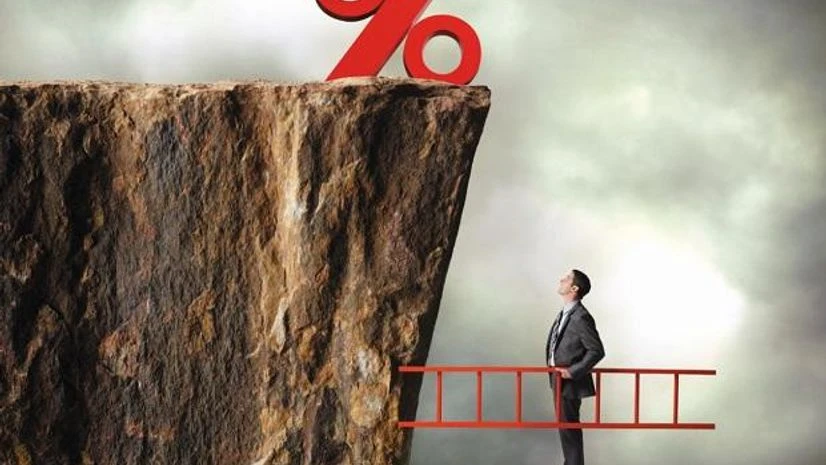In the last ten years, Prime Minister Narendra Modi's assets have increased to Rs 3.02 crore in 2024 from Rs 1.65 crore in 2014 as revealed in the affidavit filed by the Prime Minister for his candidacy from Varanasi in Uttar Pradesh. In 2019, his assets were reported at Rs 2.51 crore.
According to PM Modi's affidavit, he possesses no immovable assets and no registered property or vehicle in his name. His assets consist primarily of Rs 2.86 crore in bank deposits with the State Bank of India (SBI) and National Savings Certificates valued at Rs 9 lakh. Additionally, he owns four gold rings valued at around Rs 2.7 lakh and has no investments in securities such as shares, mutual funds, or bonds.
Practically, his entire asset base of Rs 3.02 crore is in State Bank of India fixed deposits, with some in NSC and a negligible amount in the form of gold rings.
For a long time, Indians have favored fixed-income options like bank deposits and PPF (Public Provident Fund) for their savings. These instruments are known for their stability and guaranteed returns. However, there's a growing concern: relying solely on fixed-income might not be enough to achieve your long-term financial goals.
Financial experts advise against putting all your savings in fixed deposits.
Also Read
There are two main reasons why you shouldn't invest all your money in fixed deposits (FDs):
Low returns compared to inflation: FDs offer a fixed interest rate for the entire investment period. This is good for stability, but inflation, the rise in prices over time, can eat away at your returns. If the inflation rate is higher than your FD interest rate, you'll actually lose purchasing power in the long run.
Missed growth opportunities: The stock market has historically offered higher returns than FDs. By not investing any money in equity-based assets (like stocks through mutual funds), you might miss out on significant growth potential. This is especially important for long-term goals, where compounding returns can really work in your favor.
While fixed-income mutual funds offer some advantages, there's a crucial point – even within the fixed-income world, making the right choices can significantly impact your returns.
"Investing all (or nearly all) of your savings in fixed-income deposits is a mistake only slightly better than not saving at all or not saving enough.... India has traditionally been a ‘fixed income country,’ with generations of savers instinctively opting for savings instruments like PPF, bank deposits, and post office deposits to meet all their savings needs. Investing in some equity-based assets, especially in equity-based mutual funds, is the obvious choice. Depending on one’s circumstances, this could be a small part of savings or a large part, but having zero exposure to equity should be a no-no. Whether you are the Prime Minister or not, you must reap the benefits of India’s economic growth by growing some of your money in equity-based investments," said Dhirendra Kumar of Value Research in a note.
Imagine two fixed-income investment options – one offering a return slightly higher (say, 2%) compared to the other. It might seem like a small difference initially. But here's where things get interesting: thanks to the magic of compound interest, this seemingly insignificant difference can snowball over time.
"At first glance, the difference between the best and worst fixed-income choices might seem insignificant—perhaps 1.5 to 2 per cent. However, this seemingly small difference becomes significant over time. Over a couple of decades, a 2 per cent annual differential can result in a more than 50 per cent difference in the total amount earned. You might think that no one invests for 20 years, but that's not true. While individual investments may only last two or three years, most savers maintain a substantial portion of their savings in fixed-income options for decades. Consequently, this loss of opportunity is common and affects nearly every saver," added Kumar.
Let's say you invest for 20 years. That 2% annual difference can translate to a staggering 50% less total earnings with the lower-yielding option! This isn't just a theoretical example. Many savers keep a large chunk of their money in fixed-income for the long haul. Even if individual investments are short-term (2-3 years), the combined effect over decades can be substantial.
The key message? India's economy is growing, and even those who prefer fixed-income investments should consider optimizing their choices within that category.
"The best way to maximise your real, post-tax fixed income gains is to switch from deposits to fixed-income mutual funds. Despite the turmoil in certain types of debt funds, the shortest-duration debt funds are the safest and offer substantial advantages over fixed deposits. Unlike bank FDs, open-end fixed income fund investments can be redeemed at a day's notice without any compromise on returns and investors can start the investment without having to decide what period they are investing for. And, on top of that, over time the funds generally manage to deliver 1 percent higher returns than fixed deposits," said Kumar.

)
